
Kód: 04938869
Waves of Decolonization
Autor David Luis-Brown
In "Waves of Decolonization", David Luis-Brown reveals how, between the 1880s and the 1930s, writer-activists in Cuba, Mexico, and the United States developed narratives and theories of decolonization, of full freedom and equality ... celý popis
- Jazyk:
 Angličtina
Angličtina - Väzba: Pevná
- Počet strán: 352
Nakladateľ: Duke University Press, 2008
- Viac informácií o knihe

118.60 €
Bežne: 131.84 €
Ušetríte 13.23 €

Skladom u dodávateľa v malom množstve
Odosielame za 14 - 18 dní
Potrebujete viac kusov?Ak máte záujem o viac kusov, preverte, prosím, najprv dostupnosť titulu na našej zákazníckej podpore.
Pridať medzi želanie
Mohlo by sa vám tiež páčiť
-

Using Subject Headings for Online Retrieval
279.62 € -

Present Market Situation and Prospects of Meagre (Argyrosomus Regius), as an Emerging Species in Mediterranean Aquaculture
24.16 € -

Prairie West as Promised Land
73.33 € -

Computational Methods in Solid Mechanics
277.26 € -

Pursuit of Certainty
205.15 € -

Heaven of Hell
19.45 € -3 % -

Die Bedeutung der Stellung in der Geschwisterreihe
50.28 € -4 %
Darčekový poukaz: Radosť zaručená
- Darujte poukaz v ľubovoľnej hodnote, a my sa postaráme o zvyšok.
- Poukaz sa vzťahuje na všetky produkty v našej ponuke.
- Elektronický poukaz si vytlačíte z e-mailu a môžete ho ihneď darovať.
- Platnosť poukazu je 12 mesiacov od dátumu vystavenia.
Viac informácií o knihe Waves of Decolonization
Nákupom získate 293 bodov
 Anotácia knihy
Anotácia knihy
In "Waves of Decolonization", David Luis-Brown reveals how, between the 1880s and the 1930s, writer-activists in Cuba, Mexico, and the United States developed narratives and theories of decolonization, of full freedom and equality in the shadow of empire. They did so decades before the decolonization of Africa and Asia in the mid-twentieth century. Analyzing the work of novelists, social scientists, nationalist leaders, and others, such as W. E. B. Du Bois, Claude McKay and Jose Marti, Luis-Brown brings together an array of thinkers who linked local struggles against racial oppression and imperialism to similar struggles in other nations.With discourses and practices of hemispheric citizenship, writers in the Americas broadened conventional conceptions of rights to redress their loss under the expanding U.S. empire. In focusing on the transnational production of the national in the wake of U.S. imperialism, Luis-Brown emphasizes the need for expanding the linguistic and national boundaries of U.S. American culture and history. Luis-Brown traces unfolding narratives of decolonization across a broad range of texts. He explores how Marti and Du Bois, known as the founders of Cuban and black nationalisms, came to develop anticolonial discourses that cut across racial and national divides.He illuminates how cross-fertilizations among the Harlem Renaissance, Mexican indigenismo, and Cuban negrismo in the 1920s contributed to broader efforts to keep pace with transformations unleashed by ongoing conflicts over imperialism, transformations explored in novels by McKay of Jamaica, Jesus Masdeu of Cuba and Miguel Angel Menendez of Mexico. Focusing on ethnography's uneven contributions to decolonization, he investigates how Manuel Gamio, a Mexican anthropologist, and Zora Neale Hurston each adapted metropolitan social science for use by writers from the racialized periphery.
 Parametre knihy
Parametre knihy
Zaradenie knihy Knihy po anglicky Society & social sciences Society & culture: general Social groups
118.60 €
- Celý názov: Waves of Decolonization
- Podnázov: Discourses of Race and Hemispheric Citizenship in Cuba, Mexico, and the United States
- Autor: David Luis-Brown
- Jazyk:
 Angličtina
Angličtina - Väzba: Pevná
- Počet strán: 352
- EAN: 9780822343653
- ISBN: 0822343657
- ID: 04938869
- Nakladateľ: Duke University Press
- Hmotnosť: 635 g
- Rozmery: 236 × 163 × 28 mm
- Dátum vydania: 06. October 2008
Obľúbené z iného súdka
-

Women Who Run with the Wolves
11.97 € -

Orientalism
11.05 € -23 % -

The Mastery of Love
12.28 € -20 % -

Eros and Mysteries of Love
17.20 € -19 % -
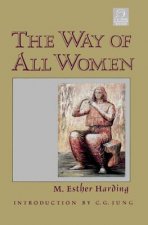
Way of All Women
31.44 € -13 % -

Freedom Writers Diary
15.35 € -9 % -
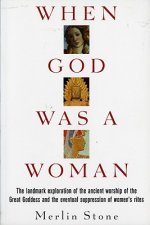
When God Was A Woman
19.66 € -4 % -

Woman's Dictionary of Sacred Objects
27.44 € -6 % -

Like She Owns the Place
16.48 € -24 % -

Don't Sleep, There are Snakes
13.20 € -24 % -

DEAR MADAM PRESIDENT
20.17 € -6 % -

You Just Don't Understand
12.28 € -23 % -

Beyond the Rope
26.21 € -3 % -

Lost Keys of Freemasonry
10.03 € -19 % -

Dancing Barefoot
18.12 € -2 % -

Think Like a Monk
15.76 € -24 % -

Second Sex
16.58 € -23 % -

Tom of Finland. The Complete Kake Comics
21.19 € -

Women Who Run With The Wolves
17.61 € -9 % -

Goddesses in Everywoman
12.28 € -23 % -

The Way of Men
14.02 € -19 % -

The Autobiography of Malcolm X
10.54 € -8 % -

Nice Girls Don't Get The Corner Office
9.82 € -24 % -

Empire of the Summer Moon
14.43 € -23 % -

Desert Flower
10.23 € -24 % -

Dance of Anger
11.15 € -23 % -

World's Best Cities
38.91 € -5 % -

Manipulated Man
14.02 € -19 % -

Allegory and Philosophy in Avicenna (Ibn Sina)
81.11 € -

Who Cooked the Last Supper?
19.86 € -7 % -

The Male Nude
18.32 € -10 % -

Talking with Female Serial Killers - A chilling study of the most evil women in the world
11.15 € -23 % -
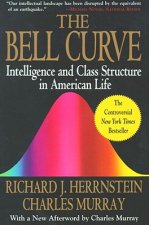
The Bell Curve
18.73 € -23 % -

Culture of Critique
23.96 € -18 % -

Intellectuals and Society
22.42 € -21 % -

Beauty Sick
12.28 € -23 % -

Black Rednecks & White Liberals
21.91 € -16 % -

Generations
19.96 € -14 % -
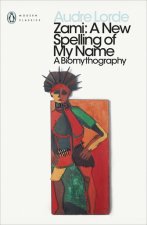
Zami
10.23 € -24 % -

Story of the Jews
13.20 € -22 % -

Muhammad: His Life Based on the Earliest Sources
20.89 € -23 % -
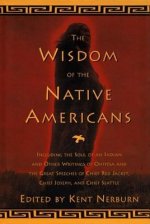
Wisdom of the Native Americans
20.07 € -1 % -
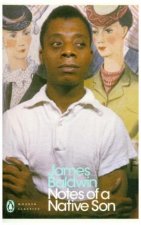
Notes of a Native Son
10.23 € -24 % -

Black Elk Speaks
20.48 € -12 % -

Complete Book of Pilates for Men
19.35 € -20 % -

The Spiral Dance
19.25 € -6 % -

Rule by Secrecy
18.53 € -21 % -

Biological Exuberance
39.12 € -
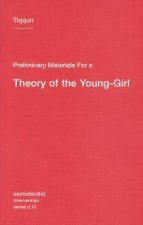
Preliminary Materials for a Theory of the Young-Girl
13.61 € -17 %
Osobný odber Bratislava a 2642 dalších
Copyright ©2008-24 najlacnejsie-knihy.sk Všetky práva vyhradenéSúkromieCookies


 21 miliónov titulov
21 miliónov titulov Vrátenie do mesiaca
Vrátenie do mesiaca 02/210 210 99 (8-15.30h)
02/210 210 99 (8-15.30h)